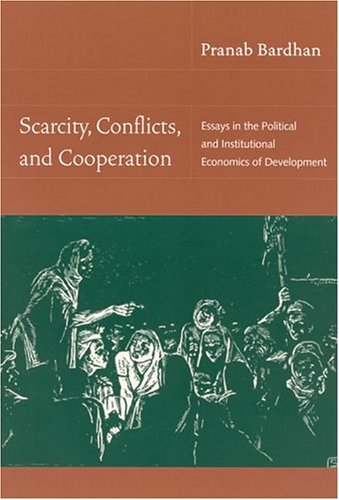

Most ebook files are in PDF format, so you can easily read them using various software such as Foxit Reader or directly on the Google Chrome browser.
Some ebook files are released by publishers in other formats such as .awz, .mobi, .epub, .fb2, etc. You may need to install specific software to read these formats on mobile/PC, such as Calibre.
Please read the tutorial at this link: https://ebookbell.com/faq
We offer FREE conversion to the popular formats you request; however, this may take some time. Therefore, right after payment, please email us, and we will try to provide the service as quickly as possible.
For some exceptional file formats or broken links (if any), please refrain from opening any disputes. Instead, email us first, and we will try to assist within a maximum of 6 hours.
EbookBell Team

4.3
58 reviewsThis wide-ranging review of some of the major issues in development economics focuses on the role of economic and political institutions. Drawing on the latest findings in institutional economics and political economy, Pranab Bardhan, a leader in the field of development economics, offers a relatively nontechnical discussion of current thinking on these issues from the viewpoint of poor countries, synthesizing recent research and reflecting on where we stand today.The institutional framework of an economy defines and constrains the opportunities of individuals, determines the business climate, and shapes the incentives and organizations for collective action on the part of communities; Pranab Bardhan finds the institutional framework to be relatively weak in many poor countries. Institutional failures, weak accountability mechanisms, and missed opportunities for cooperative problem-solving become the themes of the book, with the role of distributive conflicts in the persistence of dysfunctional institutions a common thread.Special issues taken up include the institutions for securing property rights and resolving coordination failures; the structural basis of power; commitment devices and political accountability; the complex relationship between democracy and poverty (with examples from India, where both have been durable); decentralization and devolution of power; persistence of corruption; ethnic conflicts; and impediments to collective action. Formal models are largely avoided, except in two chapters where Bardhan briefly introduces new models to elucidate currently under-researched areas. Other chapters review existing models, emphasizing the essential ideas rather than the formal details. Thus the book will be valuable not only for economists but also for social scientists and policymakers.